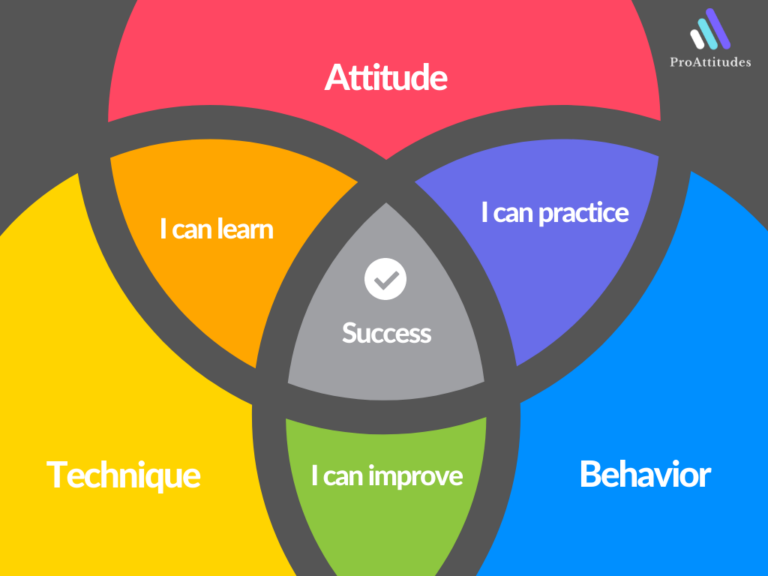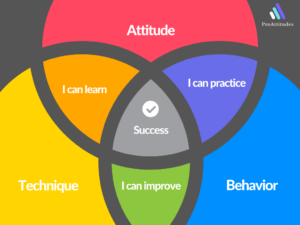Your kryptonite, and mine, is being unmotivated. Being unmotivated is something that will literally stop you in your track and crush your attitude. It’s your kryptonite and mine. No one is immune. It literally sucks all the enthusiasm and energy from you from taking any action to fix the problem. So, if we all have it, how do some people willingly embrace “the suck” and persevere?
If you’re tired of being stuck because you are suffering from a lack of motivation, you’re about to learn the 9 major reasons why your motivational energy is in short supply. But, more importantly, you’ll learn what you need to successfully accomplish your goals regardless of your motivation level. By the time you’re done reading this, you’ll have the knowledge you need to unleash the superpowers to conquer your saboteurs within you.
You don’t know your “WHY”
Not having a “Why” is like going into a restaurant that has a 10-page menu and not knowing what you want to order ahead of time. It’s amazing the number of people who, when asked what they really want, don’t know!
When I work with companies and business owners on goal-setting, they are unclear as to what their “why” is. Finding a compelling answer to “what do you want?” is the first step. If you can’t answer that question, consider the result or outcome you desire and work backward from there. Then ask yourself, why is this important to me. A goal isn’t a result. A goal is what you focus on for an outcome. If you don’t know where you want to go, a map isn’t going to be of much use.
ACTION STEP: Start with your destination, connect it to your “why” and then work backward. Once you know exactly what you want, things become clearer. Write down what you really want so that the power of that focus will bring clarity to your intentions. You can’t focus without aiming. You can’t hit a target, let alone the bullseye if you can’t see it. Know your “Why”. Write it down a compelling goal for each area of your life- physical, mental, emotional, financial, and spiritual. It’s a powerful tool that allows motivation to flow.
You’re listening to the wrong parts of your body
An unmotivated person is listening to the wrong part of their brain. Tony Robbins is the king of fixing this. If you don’t feel motivated you’re not going to look or act motivated. Think of Rocky on the top of the stairs with arms pumping in the air versus Winnie the Pooh after finding out he’s run of honey! Winnie the Pooh has slumped shoulders, sad eyes, and a defeated voice.
ACTION STEP: Pretend you are Rocky at the top of the stairs and jump up and down. Sometimes you need to act the part and you will become the part. Think about mimicking a motivated person like Rocky. Remember the last time you gave someone a high-five or a fist bump. How did you hold your head, your shoulders, your stance? It’s amazing how motion and emotion can transform your mindset. Walk like a winner, feel like a winner, and you will be perceived as a winner. Motion will transform your mindset. Try it now. Pump your fists in the air, whoop at the top of your lungs, and feel the dopamine rush as you recall when you accomplished something. Your actions will lead to motivation.
You’ve labeled yourself lazy
Do you consider yourself a procrastinator? Do you label yourself lazy? Most people create a self-fulling prophecy by labeling themselves with a negative connotation. Instead of saying “I’m so lazy,” what if you said “lying on the couch watching Netflix instead of doing my work is procrastinating”. It’s the behaviors that lead to habits. If they’re productive habits, you get stuff done. If they’re self-defeating habits, you won’t make any progress. There’s a big difference between “I’m lazy” versus “I did something lazy”.
Don’t let yourself be the mistake. It’s the behavior that needs to change. Separating yourself from the behavior is important. You won’t always be motivated to take action but that doesn’t mean you’re lazy, just that you’re not motivated right now. If you keep telling yourself that you’re lazy, it will stick and become your identity. Don’t identify yourself as an unmotivated person or you will become one!
ACTION STEP: Reframe the challenge. Attitude is everything when it comes to taking action. Two determining factors for taking action are your ability and your willingness to do it. The easier it is to do,the more willing you will be to take action. Consider you want to start exercising. You’re not motivated to spend an hour working out so you don’t commit. It’s too hard and you feel sore afterward so you never consistently work out. What if you decided that every time you walked under the pullup bar in the hall you drop and do 1 pushup? It’s easy and it’s important to you so you’re willing to do it. When you do the 1 pushup, remind yourself of the accomplishment and how motivated you are to get started. At the end of the day, you did 10 pushups! Eventually, you can up the ante and do more until you find yourself in the habit of doing 50 pushups. It all starts with the first one. You bypass motivation when you start small.
You are completely overwhelmed
When you set your mind to do something big, like start an exercise program, learn a new language, write a book, or lose weight, it’s easy to feel overwhelmed, especially at the beginning. Why? Because your brain like to focus on one thing at a time. When we start something new, there are so many things to focus on, the brain shuts down because it needs clarity and focus, not possibilities.
ACTION STEP: It’s important to have big hairy audacious goals (BHAGS). Ones that push you way outside your comfort zone. However, the first step is to pick one thing you can do to get one step closer to your goal. For starting an exercise program, the BHAG might be deciding to walk or run a marathon. Then the first step is to put on your running shoes. That’s right. It’s that simple. The walk or run is gravy. Let the first step be tiny even when the BHAG so big. If you can’t put on your running shoes consistently every day, the BHAG is not connected to your “Why”. It’s not that you’re unmotivated, it’s that you aren’t focusing on what’s truly important to you and you aren’t starting with the first, smallest, achievable step forward.
You’re suffering from the Imposter Syndrome
If you think you don’t have what it takes, whether it be in work or play, you limit your potential by creating a glass ceiling. Nothing will kill motivation faster than the wrong mindset. If you think you can’t you’re stuck. Imposter Syndrome creates intense anxiety that revolves around your inadequacies. The only solution is to be hypervigilant and never rest lest someone calls you out for the fraud that you are.
You have chronic doubts about yourself and worry every time you are challenged. Instead of allowing constructive criticism from your friends and colleagues, you question everyone’s motives. You spend an inordinate amount of your day in constant anxiety which burns through your motivation to succeed faster rather than spend that time productively.
ACTION STEP: Expose the lie for what it is. You deserve your success. However, to be successful at the expense of your sanity and well-being is too high a cost to pay and not required. It’s time to be kind to yourself. Empathize with yourself and provide compassion for being the fallible human being we all are. Research suggests that up to 70% of Americans have suffered from Imposter Syndrome at least once in their life. Reframe the negative thoughts into encouragement. Instead of, “this isn’t good enough” say to yourself, “when is good enough, enough?”. Instead of “I’m a fraud” say to yourself, “I am capable of learning, growing, and winning even if this is something I’m not comfortable doing.”
You suffer from procrastination
Everyone has suffered from procrastination at some time in their lives. You clean the garage out instead of doing your taxes. You binge-watch Netflix instead of starting on the project that’s due next week. Some people use procrastination to create a heightened sense of motivation. If it becomes a chronic problem, that’s when it needs to be addressed.
ACTION STEP: Ask yourself why you are procrastinating. Is it you don’t know how to do something? Is it your head trash (the negative thoughts in your head that are pushing you to avoid the task? Does it seem boring or tedious? Is it too complex and you don’t know how to tackle it? Now that you know why, break it down into 3 or 4 tasks, create subtasks if you need to, and then break each task (or subtask) into steps an set deadlines for each one. Then tackle one step at a time. Each time you achieve a milestone- such as finishing a task, reward yourself with a non-food treat. If it’s a tedious and boring task, turn it into a competition with yourself. How many paragraphs can you write in five minutes? Use a smartphone timer to help you. Make it fun by playing music while you work. Have a non-food reward waiting for when you have finished.
You lack clarity with your goals
Clarity comes from focus. If everything is important, nothing is. Lack of clarity happens when you feel overwhelmed because you haven’t prioritized. The stress of being overwhelmed can stifle you and your motivation. You might even tell yourself, “I don’t know where to start, this is too much, I give up.” There’s a saying about the best way to eat a whale. It’s one bite at a time. The scope of your goal may be huge. However, if you are feeling overwhelmed, your issues are revolving around clarity. It all starts with taking the first step, no matter how small.
ACTION STEP: Prioritize your tasks into 3 buckets. Bucket 1= Urgent Things. Things that must be done today or else. Bucket 2= Opportunity, But Not Urgent. Things that, if you had the opportunity to get done this week or next, will keep the wheels turning. Bucket 3= Connected to Your Vision- things that are part of the big picture and can wait at least 2 weeks. Now, focus on getting Bucket 1 done and watch how laser focused and motivated you become!
You are looking outside yourself for motivation
There are internal motivations and external motivations. When you are looking for motivation outside of yourself (external) it won’t be as inspiring as being connected to your “Why ” (internal). When you long for support from your boss, your spouse, your children, your friends, you take away your power to choose for yourself. With their approval, you give your ability to be inspired to them.
Sometimes you can find motivation from others but oftentimes it’s not enough. And what happens if they aren’t motivated at all to help you? I work with many clients who want to lose weight but complain about their spouses sabotaging them. Instead of partners in success, they have partners in crime. They will bring home cookies, ice cream, and cake knowing that their spouse is working on improving their eating habits. When you depend on others for your motivation you place yourself in a difficult situation. Whether it’s you or our spouse, motivation is not an unlimited source. It’s fickle and finite. No one can control your choices but you.
ACTION STEP: Decide to tap into your internal motivation by starting with your “Why”. Why are you losing weight? For the summer vacation or your health? The summer vacation is an external motivator. It’s short lived and doesn’t help you once you’re done with vacation. Focusing on your health might not be enough. But if you did deeper, by asking yourself why your health is so important to you might find that wanting to be around for your son or daughter’s wedding and play with the grandkids someday is an internal motivator that you can tap into when you find yourself tripping and falling with your eating habits. Ask your spouse for support, too. If you expect support without asking, you will be disappointed. Be specific with the “ask”, too. Some spouses can eat whatever they want and not have to exercise to look great. If they come home with a takeout meal that challenges you, let them know to eat that meal on a lunch break or out with friends. Planning what you both can order can be a win-win, too.
You are avoiding developing healthy habits
Since motivation isn’t dependable, why are you counting on it? You’re seeking motivation where you should be seeking habits. The final reason most people suffer from an ongoing lack of motivation is simply that, at the end of the day, motivation doesn’t always work. You need to focus on what does; habits. Even when you aren’t inspired, habits are something you do automatically. They don’t require motivation. If you focus on time blocking the things that matter most to you and do them daily, no matter what, other people may perceive that as motivated. But here’s the truth: you will look like you’re motivated all the time when in reality you’re just been committed to your habits. I don’t have to muster up any motivation (well, some weekends I do!) to get up at 5 AM every morning, because it’s a habit. I don’t have to motivate myself to focus on exercising every day, because it’s a habit. I don’t have to get motivated to journal every day, because it’s a habit. Habits are behaviors that have been so ingrained in a neural pathway that they become a ritual that’s automatic. So, rather than depend on motivation, which isn’t going to work for you every day all the time, why not depend on habits?
ACTION STEP: Since you can’t always depend on motivation to make things happen, consider developing habits. In general, any habit can be broken down into a three-part loop that goes like this: 1. Trigger something that cues off a habit. (You see a commercial for your favorite snack.) 2. behavior—the set of actions you take in response to the cue. (You go to the kitchen and find the snack to eat.) 3. Consequences (Effective/Self-Defeating)—the results or feelings you experience from completing the actual habit. (You enjoy the reward of deliciousness… And, if you knew you shouldn’t have eaten that snack, that feeling will be followed by the negative “reward” of shame.)
Here are 5-steps to bypass motivation.
If your current routine is your comfortable prison. Becoming motivated can seem impossible. You can use this as a guide for creating a way to bypass motivation and create healthy habits of your own.
Step 1: Take a personal inventory of your accomplishments.
Step 2: Be honest about your failures and what you can learn from them.
Step 3: Decide on a BHAG- a big hairy audacious goal.
Step 4: Pick a smaller, achievable first step
Step 5: Really celebrate every victory. Let’s say you lack the motivation to exercise, and you’d like to change that by developing the habit of going to the for a walk five days a week.
Every time you accomplish your goal, practice what Dr. B.J. Fogg calls “Shine”. You may think that driving the gym isn’t worth celebrating. But by creating a moment of celebration and a sense of accomplishment, you release a dose of dopamine and are creating new neural pathways in your brain to reinforce doing that behavior. Step 5 is crucial in developing a neurochemical push to repeat the behavior again. The reward is believing in yourself. It’s the sense of accomplishment, that endorphin rush that makes you coming back for more. The simplest and most effective way to form a new habit is to anchor it to an established habit. Use the following formula to write yours: When I, (anchor behavior such as brush my teeth) I will (new habit look in the mirror and say it’s going to be a great day) and I will celebrate with “shine” for my reward.
When motivation isn’t enough, and it’s never enough, bypass your motivation by depending on habits.










